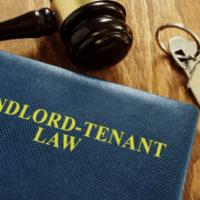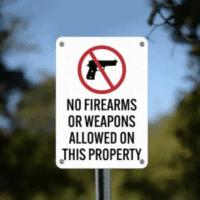Two laws restricting the presence of guns in school zones and election polling places passed the House and are headed to a Senate committee for debate.
House Bill 201, sponsored by Speaker of the House Rep. Pete Schwartzkopf, D-Rehoboth Beach, aims to enable a police officer to act immediately when they see or suspect a person with a gun in a safe school and recreation zone.
Schwartzkopf cited that as of April 4, 74 people have been killed or injured by guns in schools in 13 separate school shootings across the country.
School shootings hit a record high in 2022 with 46 shootings, he said, surpassing 2021’s record of 42 shootings. In 2022, 43,450 children experienced a school shooting.
Under the bill, the crime of possession of a firearm in a safe school and recreation zone is a class E felony, which means the culprit could face up to five years in prison.
Only police officers, constables or active-duty military personnel who are acting in an official capacity are allowed to have a gun in the school zone, per the bill.
However, it allows holders of a valid license to carry concealed weapons only if the firearm is in a vehicle.
Exemptions also include if a gun-holder is on private property not part of school grounds; if the firearm is in a locked container or locked firearms rack that is on or in a motor vehicle; or if a gun-holder is engaged in lawful hunting, firearms instruction or firearm-related sports on public lands not belonging to a school.
A student who possesses a firearm in a Safe School and Recreation Zone will be expelled for at least 90 days, but the local school board or charter school board of directors may, on a case-by-case basis, modify the terms of the expulsion.
Rep. Rich Collins, R-Millsboro, was against the bill.
“I don’t think the concealed carry folks should have been included,” he said, “and what I’m concerned about is all it’s going to take is just a careless mistake taking the gun in and now that person is in serious legal trouble.”
House Minority Leader Rep. Mike Ramone, R-Pike Creek South, clarified that the law doesn’t include Delaware’s institutions of higher education.
House Bill 202, sponsored by Rep. Cyndie Romer, D-Newark, limits individuals who possess a firearm at a polling place on an election day to law enforcement officers, commissioned security guards or constables acting in their official capacity or active-duty members of the United States Armed Forces and Delaware National Guard acting in their official capacity.
This includes local district elections.
Also Thursday:
- House Bill 129, sponsored by Rep. Ronald Gray, R-Bethany Beach, adds definitions for negligence, misconduct and incompetence for the Council of the Delaware Association of Professional Engineers to determine whether a licensee is subject to discipline.
It also removes the requirement that an applicant who fails the Principles and Practice of Engineering examination four times must go through additional steps before taking the examination another time.
Gray said ditching that requirement will eliminate barriers to licensure.
“These changes will ensure that discipline is imposed for conduct that poses a risk to the public,” he said.
HB 129 heads to a Senate committee.
- House Bill 141, sponsored by Rep. Eric Morrison, D-Glasgow, requires all candidates for statewide office, the General Assembly, and all elected county offices to request a criminal history background check from the State Bureau of Identification.
Candidates must submit the request no later than the filing deadline for their specific position.
Within 10 days of receipt of the request, the bureau would be required to provide the Commissioner of Elections with a report of the candidate’s criminal history.
The Commissioner of Elections must then determine if the candidate is qualified to be considered a candidate and have their name appear on the ballot. Until then, the candidate will be considered a provisional candidate until the commissioner confirms they are qualified.
Representative Lyndon Yearick, R-Camden, asked if those who have a crime on their record expunged would qualify to hold office.
Yes, Morrison said.
HB 141 will be assigned to a Senate committee.
- House Bill 154, sponsored by Rep. Krista Griffith, D-Fairfax, is dubbed the Delaware Personal Data Privacy Act.
The legislation delineates a consumer’s personal data rights and provides that Delawareans will have the right to know what information is being collected about them, see the information, correct any inaccuracies, or request deletion of their personal data that is being maintained by entities or people.
All entities that conduct business in Delaware must abide by the rule if it controls or processes the personal data of at least 35,000 consumers, or if it controls or processes the personal data of at least 10,000 consumers and earns more than 20% of their gross revenue from the sale of personal data.
Under the law, the Department of Justice would be tasked with engaging with consumers to educate them of their rights, as well as the business community. This campaign must start six months before the law goes into effect, which would be Jan. 1, 2025.
Per the fiscal note, the law comes with an operating cost of $280,454 in fiscal year 2024, $572,126 in fiscal year 2025 and $583,568 for fiscal year 2026. The funds are assumed by the Department of Justice for hiring and other resources.
HB 154 heads to a Senate committee.


Raised in Doylestown, Pennsylvania, Jarek earned a B.A. in journalism and a B.A. in political science from Temple University in 2021. After running CNN’s Michael Smerconish’s YouTube channel, Jarek became a reporter for the Bucks County Herald before joining Delaware LIVE News.
Jarek can be reached by email at [email protected] or by phone at (215) 450-9982. Follow him on Twitter @jarekrutz and on LinkedIn
Share this Post









